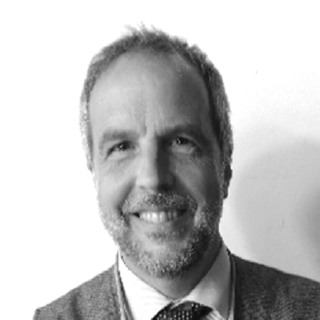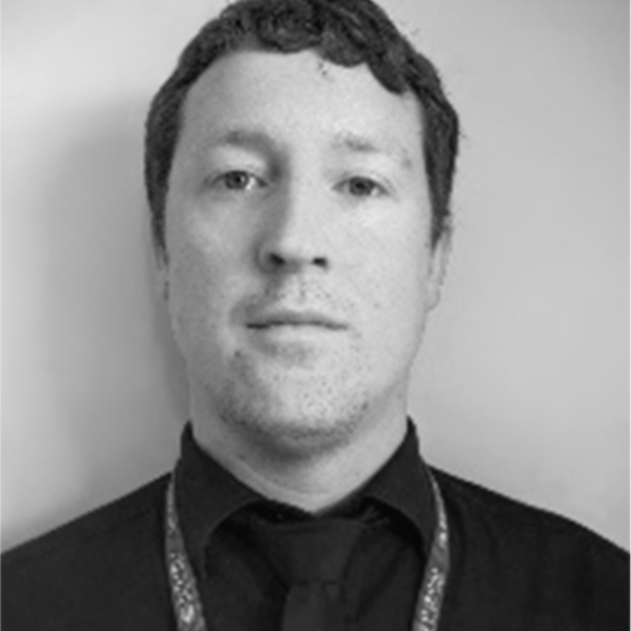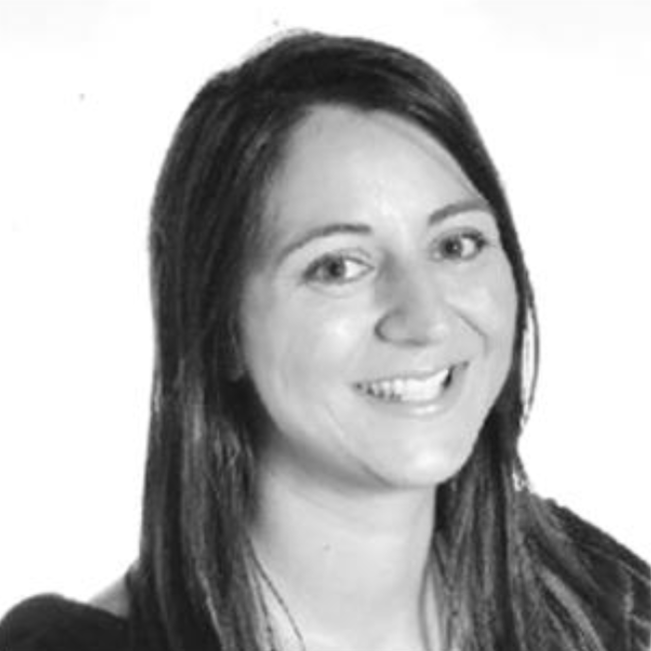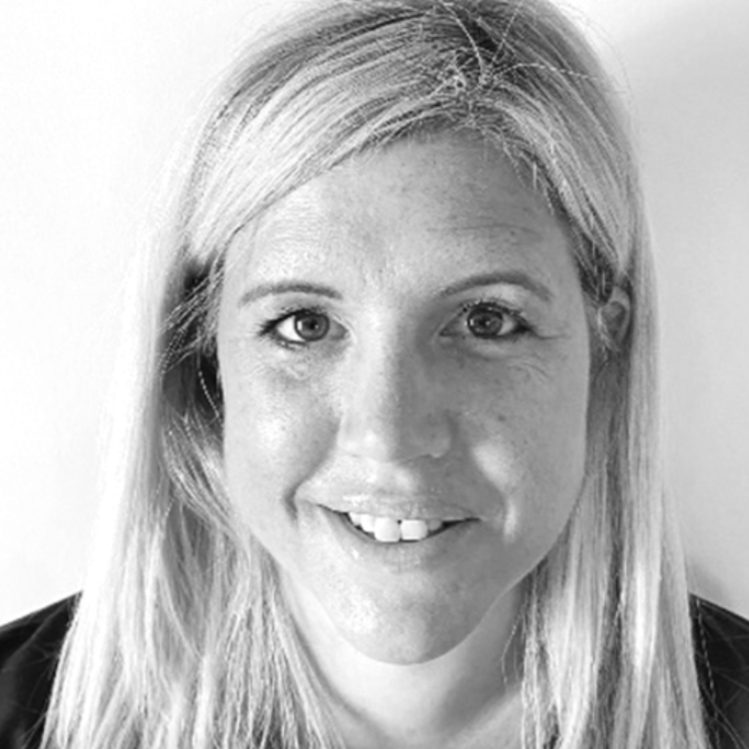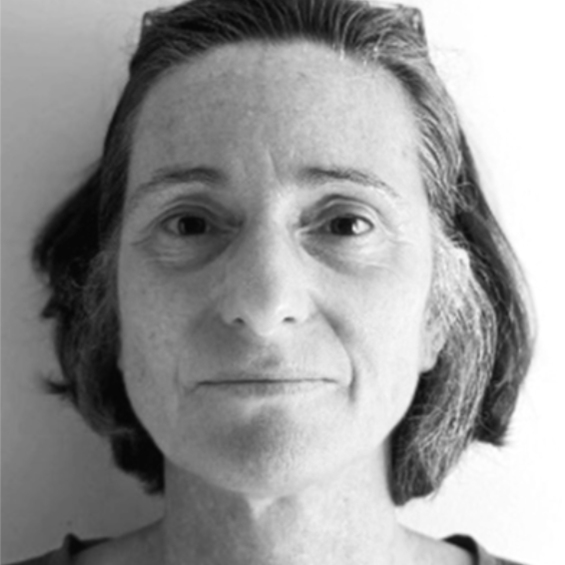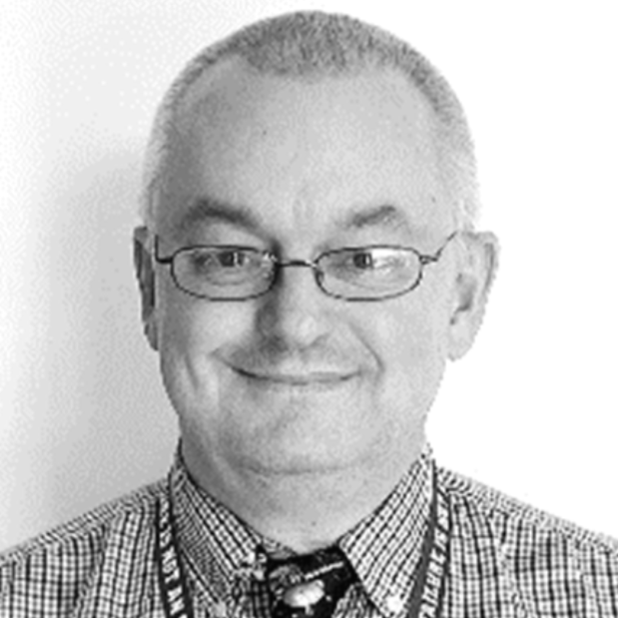Meet the Designers
Secondary courses overview
Click on the tiles to learn more about each of the subject course curriculum designers.
|
FOR: Graduates, Career changers, Returners to work
QUALIFICATIONS: Qualified Teacher Status (QTS) and PGCE (60 Masters credits)
PGCE Accredited by:
University of Nottingham START DATE: August 2024
|
anchor: primaryenglish
Improving education has been described as 'the holy grail of public policy' since, unique among public services, it has the ability to propel students into more fulfilling, healthier and happier lives - but only when they are the recipients of the best possible teaching. Working with the next generation of teachers is an opportunity to build on and contribute to the growing evidence base around how we provide the education our students deserve if they are to flourish.
Jon Eaton
CURRICULUM DESIGN LEAD
How Pupils Learn
Adaptive Teaching
Classroom Practices
CURRICULUM DESIGN LEAD
How Pupils Learn
Adaptive Teaching
Classroom Practices
anchor: primaryenglish
Becoming an effective History Teacher is an essential job because, in the words of philosopher George Santayana;
” Those who cannot remember the past are condemned to repeat it”
History teachers help pupils discover their heritage, gain an understanding of society, culture and political systems and learn from past successes and failures toguide their future decision making. History enables us to connect with people and events from the pastand is simply fascinating.In this course, you will learn evidence-based teaching techniques to ensure all pupils learn the lessons from the past. Alongside this you will develop ways to bring the past to life and inspireour young learners to become the next generation of historians.
” Those who cannot remember the past are condemned to repeat it”
History teachers help pupils discover their heritage, gain an understanding of society, culture and political systems and learn from past successes and failures toguide their future decision making. History enables us to connect with people and events from the pastand is simply fascinating.In this course, you will learn evidence-based teaching techniques to ensure all pupils learn the lessons from the past. Alongside this you will develop ways to bring the past to life and inspireour young learners to become the next generation of historians.
John Stanier
MENTOR CURRICULUM DESIGN LEAD
MENTOR CURRICULUM DESIGN LEAD
anchor: primaryenglish
It is a given that teachers need to develop expert subject and phase specific knowledge to be effective in the classroom. But teaching in our modern school setting requires so much more than that. Teachers are expected (amongst lots of other things) to be role models, understand the individual needs of all their students, build relationships with parents, carers and families and take control of their own career pathway and wellbeing. The Professional Behaviours strand looks at how teachers build that widercontribution in the life of a school and how withreflective practiceand mentoring, teachers can thrive in the early years of their career.
Martin Lewis
CURRICULUM DESIGN LEAD
PROFESSIONAL BEHAVIOURS
CURRICULUM DESIGN LEAD
PROFESSIONAL BEHAVIOURS
anchor: secondaryart
Secondary | Art and Design
We have designed a course, informed by our own experiences as Art teachers and secondary PGCE course leads, that we are confident will be engaging, highly relevant and fun. Our curriculum has been devised to ensure that trainees have the necessary experience, knowledge, and understanding to be best equipped to become confident and highly skilled classroom practitioners. We will study the theory behind best practice and delve into Art and Design specific literature and pedagogy.
When planning our course, we have placed classroom practice and subject knowledge at the top of our priorities because we are acutely aware that trainees come to us from a wide range of different undergraduate courses across a myriad of disciplines. This is reflected in our planned skill sharing workshops where trainees will learn new (or refresh knowledge of) skills and techniques including painting and drawing, sculpture, textiles, print making, digital media and photography.
anchor: secondarymaths
Secondary | Maths
What maths is, and what it means to do maths are the subject of multiple books, papers, blogs, chats and general rants!
It might be said that maths is a way of being, a lens through which to view and understand the world.
Solving problems sits at the heart of mathematics but reaching that solution may not be enough. In being mathematical, we might compare multiple approaches looking for elegance, accuracy and efficiency. These are all features of what might be called a mathematical perspective.
From the workings of a computer to the way in which we load a dishwasher, maths permeates and informs our lives and the way in which we interact with the world around us.
anchor: secondaryenglish
Secondary | English
English holds a special place in the curriculum. At the cornerstone of all learning is language, so literacy skills are paramount for success in all subject areas. As such, the English language can open the door to opportunity. It is at the heart of communication worldwide and can prove vital to the success and future of all students. English provides a medium that can be used for teaching students about history, culture and critical thinking. It is a vessel for opening students’ minds, expanding their world view and developing them into responsible and autonomous learners. This special subject is the key to opening up the possibility of learning to all students.
anchor: secondarycomputing
Secondary | Computing
Computer Science is changing every facet of our lives and it is vital that students gain an understanding of this to enable them to make informed choices as consumers of technology but also as future decision-makers be they software developers, engineers, doctors, solicitors or entrepreneurs.
Only part of the National Curriculum since 2014, the understanding of what and how to teach Computer Science has rapidly developed over that period. Through the course we will equip you to make this vital subject come alive for students, using the best research-informed approaches, that will inspire all learners and enable them to make sense of even the most complex aspects of the subject.
Only part of the National Curriculum since 2014, the understanding of what and how to teach Computer Science has rapidly developed over that period. Through the course we will equip you to make this vital subject come alive for students, using the best research-informed approaches, that will inspire all learners and enable them to make sense of even the most complex aspects of the subject.
anchor: secondarygeography
Secondary | Geography
Geographers are able to understand the world as it changes around them – it’s arguably the most important subject on any school curriculum! The SWIFT Geography course explores Physical and Human Geography, making important connections between the society and the natural world. There is focus on detailed and up-to-date subject knowledge, specific pedagogical approaches and an understanding of common Geographical misconceptions. Geography takes skills that are
learnt in other subject such as Maths and Science and applies them to situations ranging from the local area to global challenges.
learnt in other subject such as Maths and Science and applies them to situations ranging from the local area to global challenges.
anchor: secondaryhistory
Secondary | History
Becoming an effective History Teacher is an essential job because, in the words of philosopher George Santayana;
"Those who cannot remember the past are condemned to repeat it."
History teachers help pupils discover their heritage, gain an understanding of society, culture and political systems and learn from past successes and failures to guide their future decision making. History enables us to connect with people and events from the past and is simply fascinating. In this course, you will learn evidence-based teaching techniques to ensure all pupils learn the lessons from the past. Alongside this you will develop ways to bring the past to life and inspire our young learners to become the next generation of historians.
"Those who cannot remember the past are condemned to repeat it."
History teachers help pupils discover their heritage, gain an understanding of society, culture and political systems and learn from past successes and failures to guide their future decision making. History enables us to connect with people and events from the past and is simply fascinating. In this course, you will learn evidence-based teaching techniques to ensure all pupils learn the lessons from the past. Alongside this you will develop ways to bring the past to life and inspire our young learners to become the next generation of historians.
anchor: secondaryMFL
Secondary | Modern Languages
The vision I have for MFL is to promote social justice and social mobility by designing an ambitious curriculum which is accessible and engaging for all, including disadvantaged pupils and SEND students. The aim of this curriculum is to empower teachers to teach language that is useful for real life communication and create more fluent linguists. This is why the cognitive load theory is at the centre of its design. There will be a strong focus on communicative functions and related constructions as well as interleaving, which will provide learners with opportunities to recycle language and link new information to prior knowledge with the ultimate goal to move language from the working memory to the long-term memory.
We are excited to be able to offer 3 language courses French, Spanish and joint French/Spanish.
Schools often ask for teachers to have a second language, if applying for either French or Spanish there will be the option to undertake a short course in a second language if you do not already have one. If you have studied a language not mentioned please get in touch to discuss options.
We are excited to be able to offer 3 language courses French, Spanish and joint French/Spanish.
Schools often ask for teachers to have a second language, if applying for either French or Spanish there will be the option to undertake a short course in a second language if you do not already have one. If you have studied a language not mentioned please get in touch to discuss options.
anchor: secondaryMusic
Secondary | Music
Music is an expressive tool that creates communities and builds foundations of common ground. The power of Music is like no other and helps us to express our emotion whilst also feeling a sense of identity. It allows us to share experiences and aspire to expertise. If you would love to inspire the next generation to feel the same, then this course is for you. You will develop your musical subject knowledge and skills alongside evidence-based pedagogical approaches to help shape and mould our future society in and out of the classroom. Challenging our preconceptions of Music and exploring how the diverse nature of the subject can come together to create common footing, will help those around us grow.
Secondary | PE
anchor: secondaryPE
Physical Education provides cognitive content and instruction designed to develop motor skills, knowledge, and behaviours for physical activity and physical fitness. Supporting students through PE daily can provide them with the ability and confidence to be physically active for a lifetime.
PE not only creates a healthier nature it develops students’ skills such as teamwork and cooperation. It helps to build self-confidence and provides opportunities for personal goal setting. Through PE we can help reduce stress and anxiety, whilst providing an outlet for creativity and self-expression.
All of these benefits make PE an essential part of the educational experience for students of all ages.
Our PE PGCE will enable you to observe and practice how to transfer your passion and coaching skills to the Sports Hall or classroom and make P.E accessible to all. It will expose you to a breadth of sports whilst enhancing your core and advanced skills. Sports include Gymnastics; Rugby; Athletics; Table Tennis; Kinball; Hockey; Football; Netball; Cricket; Tennis; Basketball and Dance, as well as many more. Your timetable includes approx. 38 PE specific subject knowledge sessions distributed across the year.
The placements will offer you experience across the KS3, KS4 and KS5 pathways (when appropriate). You will have the opportunity to develop and expand your theoretical knowledge and classroom teaching with the range of academic courses provided in our placement schools such as GCSE PE and Sports Studies for KS4 students and A-Level; BTEC; Cambridge Nationals or Cambridge Technicals for KS5.
PE not only creates a healthier nature it develops students’ skills such as teamwork and cooperation. It helps to build self-confidence and provides opportunities for personal goal setting. Through PE we can help reduce stress and anxiety, whilst providing an outlet for creativity and self-expression.
All of these benefits make PE an essential part of the educational experience for students of all ages.
Our PE PGCE will enable you to observe and practice how to transfer your passion and coaching skills to the Sports Hall or classroom and make P.E accessible to all. It will expose you to a breadth of sports whilst enhancing your core and advanced skills. Sports include Gymnastics; Rugby; Athletics; Table Tennis; Kinball; Hockey; Football; Netball; Cricket; Tennis; Basketball and Dance, as well as many more. Your timetable includes approx. 38 PE specific subject knowledge sessions distributed across the year.
The placements will offer you experience across the KS3, KS4 and KS5 pathways (when appropriate). You will have the opportunity to develop and expand your theoretical knowledge and classroom teaching with the range of academic courses provided in our placement schools such as GCSE PE and Sports Studies for KS4 students and A-Level; BTEC; Cambridge Nationals or Cambridge Technicals for KS5.
anchor: secondaryRE
Secondary | RE
RE could not be more important for students in a post- covid, politically divisive world. Our purpose is to create spaces of tolerance and discussion, where students feel safe to explore their own world views and those of others. If your background is in sociology, psychology, criminology, theology, philosophy, and other humanities this course is for
you. You will learn how to enrich your subject knowledge through research, how to encourage students to critically assess through pedagogical approaches and how to progress and develop through a career in challenging RE. You will
also learn how to apply the disciplines you love within an RE classroom and to ensure diverse interpretations of world views within Britain and globally.
you. You will learn how to enrich your subject knowledge through research, how to encourage students to critically assess through pedagogical approaches and how to progress and develop through a career in challenging RE. You will
also learn how to apply the disciplines you love within an RE classroom and to ensure diverse interpretations of world views within Britain and globally.
anchor: secondarysciencebiology
Secondary | Biology
Science is the pursuit of knowledge and understanding of the world around us. If you have a passion for science and want to share that with the next generation of scientists this course will enable you to do so. We will look to secure your subject knowledge in all aspects of science to enable you to inspire and enthuse the young people you will teach. Alongside your subject knowledge you will build knowledge of pedological processes to help shape the minds of the future and to be the inspiring teaching students remember for the rest of their lives.
anchor: secondarysciencechemistry
Secondary | Chemistry
Science is the pursuit of knowledge and understanding of the world around us. If you have a passion for science and want to share that with the next generation of scientists this course will enable you to do so. We will look to secure your subject knowledge in all aspects of science to enable you to inspire and enthuse the young people you will teach. Alongside your subject knowledge you will build knowledge of pedological processes to help shape the minds of the future and to be the inspiring teaching students remember for the rest of their lives.
anchor: secondarysciencephysics
Secondary | Physics
Physics is arguably the most basic of the Natural Sciences. It is the foundation science that underpins the other science, technological and engineering disciplines.
Physics helps us to understand how our world works, from the smallest particles to great clusters of galaxies beyond our imagination.
In Physics we examine how energy and matter interact and develop rules which can be applied to gain a deeper understanding of our universe. Alongside this you will focus on your ability to communicate key physics skills and concepts, to enable you to inspire our young minds in the classroom.
Physics helps us to understand how our world works, from the smallest particles to great clusters of galaxies beyond our imagination.
In Physics we examine how energy and matter interact and develop rules which can be applied to gain a deeper understanding of our universe. Alongside this you will focus on your ability to communicate key physics skills and concepts, to enable you to inspire our young minds in the classroom.
Teacher Training in the South West with SWIFT |
© COPYRIGHT 2023 SWIFT TEACHER TRAINING. ALL RIGHTS RESERVED | Website by brightblueC
